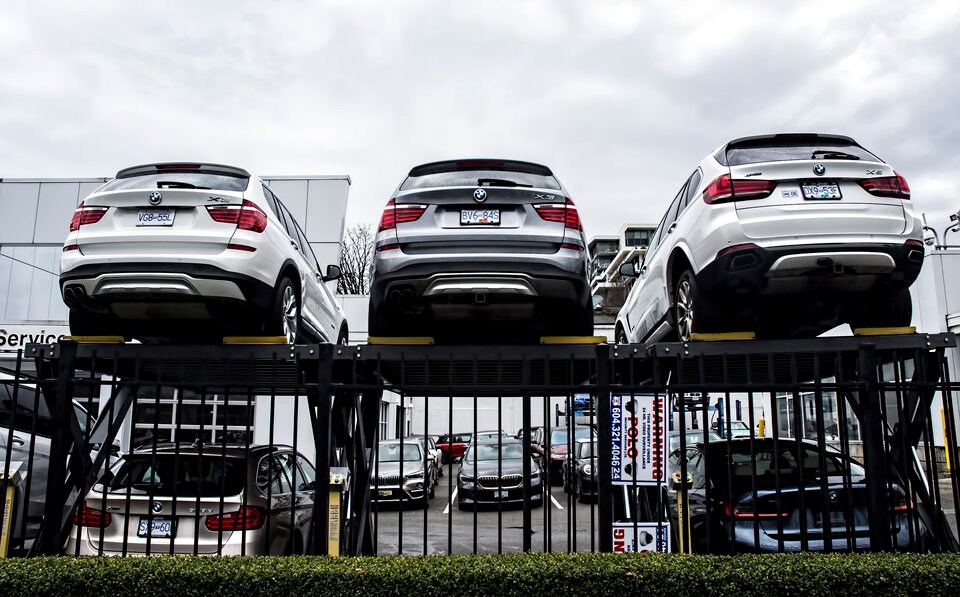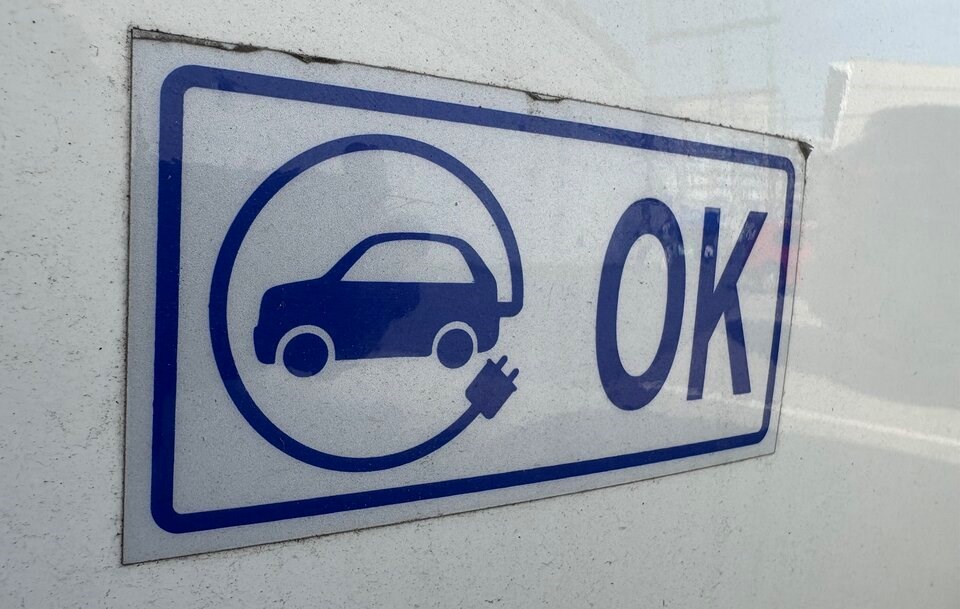The B.C. government is reviewing a program that provides decals to electric vehicle owners so they can have unfettered access to highway HOV lanes.
The blue and white decals — which include an image of a car surrounded by a power cable and the word “OK” — have been made available free of charge to drivers of hybrids, electric and hydrogen-powered vehicles since former B.C. Liberal Premier Christy Clark introduced the program in 2016.
At the time, Clark said the idea was to make greener transportation options “easier and more efficient.”
Four months later, the B.C. NDP won control of government but continued the program.
In the seven years leading up to the end of January 2025, the decal program cost the province more than $450,000.
Over that time, B.C. has handed out nearly 113,000 decals at a cost of just over $4 apiece, according to a document provided under B.C.'s freedom of information laws.
The document, which was requested by an unknown business, shows that more than half of the program’s costs were due to staffing. The rest came from the development of an online system, as well as buying and mailing the decals to drivers.
Ministry review of program comes amid tightening of EV incentives
Designed to encourage drivers to adopt zero-emissions vehicles, that goal has proven successful, according to a spokesperson with B.C.'s transportation ministry.
“The Ministry of Transportation and Transit recognizes that since the program’s inception, the popularity of fully electric and plug-in hybrid vehicles has grown,” wrote the spokesperson.
“The ‘OK’ decal program is being reviewed to see if any improvements or changes are warranted.”
While the B.C. government has continued to build out electric vehicle charging infrastructure across the province, some provincial incentive programs have faced tightening restrictions in recent years.

鈥婽he province narrowed who could receive a full $4,000 rebate on a new electric vehicle in 2022.
In June 2024, the provincial government cut about 75 per cent of electric and hybrid models from its rebate program.
And this year, two more electric vehicle incentives were dropped; first, the federal government said it would end its rebate on new TVs, and then the B.C. government tabled a budget that will eliminate a tax break on second-hand EV sales.
The combined effect, say experts, has led EV sales in B.C. to essentially flatline at a moment where geopolitical tensions are propping up the cost of electric vehicles.
A fall 2024 TD Economics concluded that if electric vehicle rebates were removed, B.C. and Canada would be unable to meet targets requiring all new light-duty vehicles to be 100 per cent zero emission by 2035.





